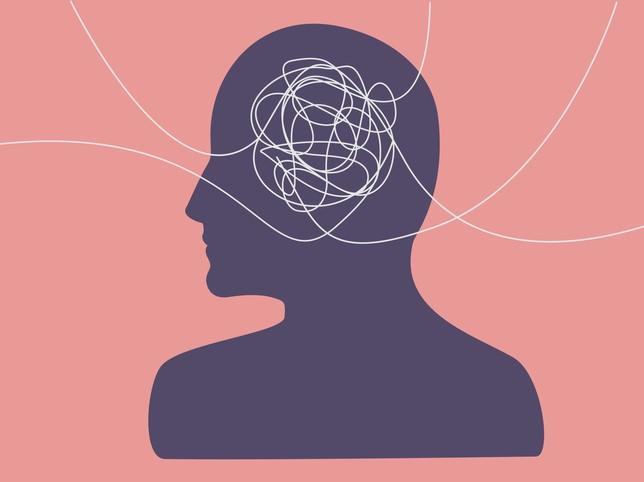
Transforming mental health in South African universities: the promise of AI chatbots

You may also like
The mental health of university students is a growing concern globally. The numbers in South Africa are a grim testament to the extent of the problem. In a 2023 study of about 70,000 students across 17 universities in the country, 21 per cent reported signs of clinical trauma, while 37.1 per cent reported anxiety symptoms. Another study, in 2019, found 30.6 per cent of students had thoughts of suicide, while 16.6 per cent had made a suicide plan and 2.4 per cent had made an attempt. The Covid-19 pandemic amplified students’ feelings of isolation and uncertainty.
The University of Western Cape (UWC) has developed a student mental health and well-being policy that seeks to address the issue in an integrated manner. An implementation plan that accompanies this policy encourages each faculty to proactively tailor action to their students’ mental health needs.
- Eight ways to improve your digital well-being
- Tackling the campus mental health crisis has to be a team sport
- How to work smarter, not harder in higher education
Multiple factors contribute to a need for South African higher education institutions to address mental health more innovatively. Many students still deal with the stigma of visiting a counselling centre despite measures to maintain confidentiality. The public health system in South Africa offers limited mental health services, which results in countless students grappling with depression, anxiety and other issues. In addition, there is a shortage of mental health professionals, long waiting lists at clinics, and issues with access for students in rural communities and efficiency of the system.
AI chatbots for mental health support
One promising innovation is AI-driven chatbots. They can provide a nonjudgemental, readily available, cost-effective avenue for individuals to access information, support and guidance related to mental health.
UWC wanted to be wiser with their mental health offering, and so introduced a mental health chatbot named Wysa. Free text messaging is tailored to an individual’s needs and guides them through clinically proven interactive cognitive behavioural therapy (CBT) exercises. This approach helps users to improve their mental health before symptoms become severe.
Not only do AI chatbots increase accessibility to services regardless of the student’s location, they also have the potential to provide life-saving support in critical situations. Their 24-hour availability gives students access to professional support at any time. If needed, the student can connect to a real-time counselling service for additional input, and there is an SOS function connected to the university’s helplines.
As the AI Chatbot is a virtual entity, the student can use the technology free from judgement they may experience when discussing their challenges with another human being, a problem in South Africa and worldwide. This adds a layer of safety for the student user.
AI chatbots can offer support tailored to the student’s needs and challenges. Natural language processing and machine-learning algorithms are used to formulate a response to the student’s concerns, which creates a feeling of care and support. In addition, a chatbot can provide daily check-ins, tell the student about self-help strategies and coping mechanisms, and be a presence in their life.
This wraparound assistance can reduce risk levels. AI chatbots can serve as an early-warning system, identifying mental health issues before they escalate and offering potential for early intervention.
More affordable and accessible mental health services
Chatbots are also an economical way to serve an entire university student and staff population, making mental health resources available to a wider audience. Chatbots can yield valuable data for mental health research, identifying trends, symptoms, user behaviour and the possibility of more effective interventions. By measuring what works and what is effective, we at UWC are able to provide the right solution at the right time on a personalised basis, without losing scalability.
While an AI application such as Wysa can provide much needed support and guidance to a wider audience, they are not substitutes for mental healthcare professionals. They augment counselling services and can provide skills to students that they can self-learn. At the same time, it frees up time and resources for those for whom more traditional and focused forms of support are needed.
Messaging and intervention
Since its adoption at UWC in October 2023, 2,368 users have engaged with the Wysa platform, of which 13 per cent are staff members, including academic and support staff. Upon onboarding, users have reported facing challenges related to motivation (10 per cent) and anxiety (10 per cent). A substantial proportion of users, about 47.26 per cent and 59.1 per cent, respectively, exhibited symptoms indicative of depression and anxiety. This underscores the prevalence and severity of mental health issues among the student population. In terms of engagement patterns on the platform, users on average exchanged 51.33 messages per session and spent 28.19 minutes in a single session, indicating a significant level of interaction and investment in using the platform. Moreover, about 47 per cent of users returned for five or more sessions.
Importantly, Wysa has demonstrated its effectiveness in crisis intervention, successfully signposting four instances to emergency helplines and 53 instances to appropriate employee assistance programme services. Feedback from users has been overwhelmingly positive, with 91.78 per cent rating Wysa as helpful.
The mental health crisis within South African universities is a multifaceted problem that demands a multifaceted solution. AI chatbots offer a beacon of hope, serving as a readily accessible, stigma-reducing, proactive resource to aid students in their time of need. However, these innovations must be deployed thoughtfully, with a commitment to equity, privacy and ethical considerations.
Matete Madiba is deputy vice-chancellor for student development and support at the University of the Western Cape, South Africa.
If you would like advice and insight from academics and university staff delivered direct to your inbox each week, sign up for the Campus newsletter.
If you’re having suicidal thoughts or feel you need to talk to someone, a free helpline is available around the clock in the UK on 116123, or you can email jo@samaritans.org. In the US, the National Suicide Prevention Lifeline is 1-800-273-8255. In Australia, the crisis support service Lifeline is 13 11 14. Other international suicide helplines can be found at www.befrienders.org.


